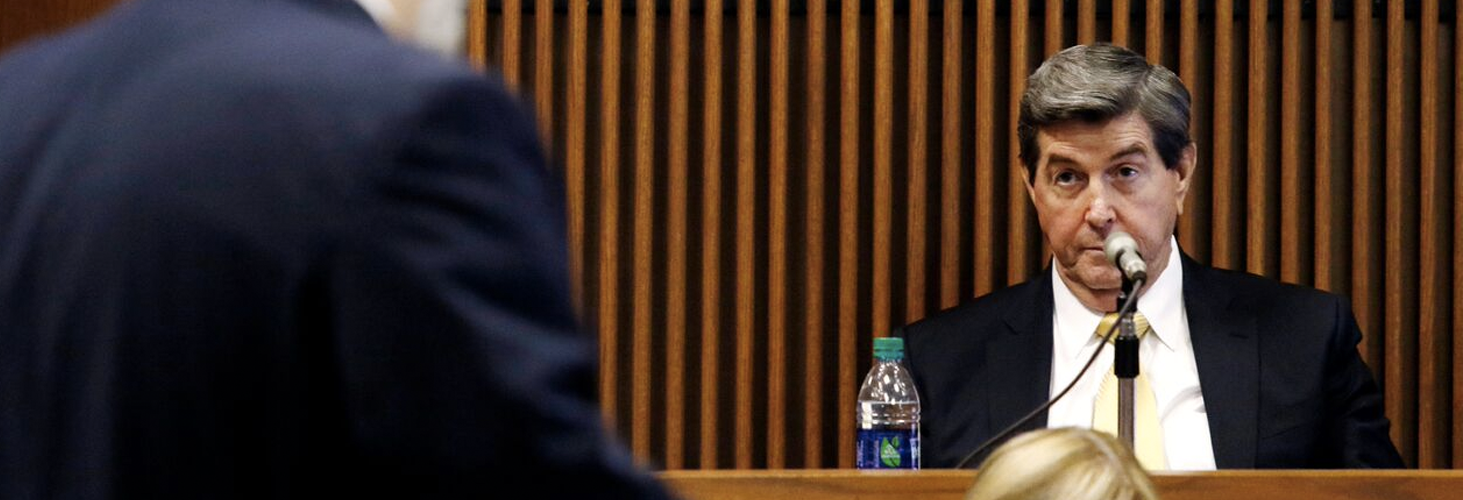By Bill Britt
Alabama Political Reporter
Controversy still clings to HB317, also known as The Alabama Jobs Enhancement Act, despite the substitute added Tuesday that, at first blush, appears to fix problems with the original bill. Concerns remain.
The mystery of why a substantial change to the Ethics Act is linked to amendments addressing business development and contract negotiations, etc. can’t help but raise questions. Perhaps the answers can be found in emails between former Gov. Bob Riley and then Speaker of the House Mike Hubbard exposed during Hubbard’s criminal trial.
For anyone trying to understand any proposed revision to the state’s ethics laws must first realize that every change, good or bad, leads back to a Lee County courtroom where Hubbard was found guilty of 12 felony counts of breaking the ethics laws he helped to create.
It is also vital to understand that powerful businessmen were involved in Hubbard’s crimes, and these wealthy individuals could have been charged along with Hubbard. So, when reviewing alterations to any section of the ethics code, it is also instructive to remember who testified at Hubbard’s trial and who could have been indicted along with him.
So it is with HB317.
Referred to as, “the economic development bill,” around the State House, HB317 owes its origins to the Secretary of Commerce Greg Canfield and yet unknown parties or party.
As initially proposed, the bill would have served as a get-out-of-jail-free card for lawmakers and public officials who would want to commit the same crimes as Hubbard. The House amended the Canfield bill to mostly prevent public officials from following Hubbard’s crooked example.
A substitute to HB317, excludes, “public officials or employees – anyone who works for a lobbyist, or anyone who is a lobbyist, in fact.” This sentence seems to clear up many concerns about loopholes.
However, often when reviewing legislation that excludes a certain class of people, it is necessary to figure out who is not excluded. In the case of HB317, it seemingly offers a thorough list of people who are prevented from being paid for economic development. But a very powerful class is not listed in the prohibitive section. A key omission from the prohibited class are principals.
In Hubbard’s trial, he was convicted of asking for and receiving a thing of value from a principal. However, these principals were not charged but could have been because it is also a crime for a principal to give a thing of value to a lawmaker.
If HB317 passes and is signed into law by Gov. Kay Ivey, principals will be able to give public officials things of value because they are acting as “economic development professionals.” The key to understanding how this works is an added section to HB317 that allows for “less than full-time,” economic development professionals. Any of the principals who lavished Hubbard with money could do the same for other public officials under the less than full-time exception.
How would this work?
The legislation passed in the House and sent to the Senate added a new class of individuals known as “economic development professionals,” who are not subject to the ethics act the way lobbyists or principals are under Alabama code.
Section 36-25-1.1 states:
“Lobbying includes promoting or attempting to influence the awarding of a grant or contract with any department or agency of the executive, legislative, or judicial branch of state government.”
Why HB317 even attempts to rewrite portions of the ethics code piecemeal is puzzling since the essence of the bill revolves around section 41-29-3, which actually deals with economic development.
Emails gathered during the Hubbard investigation present a scheme where Hubbard suggests that Riley, a registered lobbyist, with Bob Riley and Associates, could use to skirt the new ethics law by claiming to be a “strategic business consultant.”
Hubbard further elaborates on the plot writing, “I still believe that you are a ‘strategic business consultant’ [sic] not a lobbyist. You could hire a lobbyist for BR&A – a Riley Team person who will do it [lobby] for virtually nothing.”
Exchange the words strategic business consultant for economic development professional, and HB317 becomes a pathway around the current ethics statutes as suggested by convicted felon Mike Hubbard in a 2011 email.
Is the section in HB317 creating a special class of economic development professionals just a newer version of Hubbard’s scheme? It certainly looks like it.
Amendments made to 41-29-3 in HB317 primarily have to do with revising notifications and confidentiality provisions needed when negotiating projects such as the recent agreements with the state and Toyota-Mazda. There are other changes, but all are directly related to issues that reportedly would increase business investments and growing Alabama’s job base.
These amendments under HB317 are said to be needed, and the economic development community interests are solidly behind altering state law as it applies to these statutes.
The question as to why the legislature is amending the ethics code along with laws dealing with economic development is puzzling — unless you remember Hubbard’s trial, and his emails.
“Those ethics laws…what were we thinking?” Mike Hubbard in a 2011 email to Bob Riley.
APR will provide more analysis of HB317 in the coming days.


















































